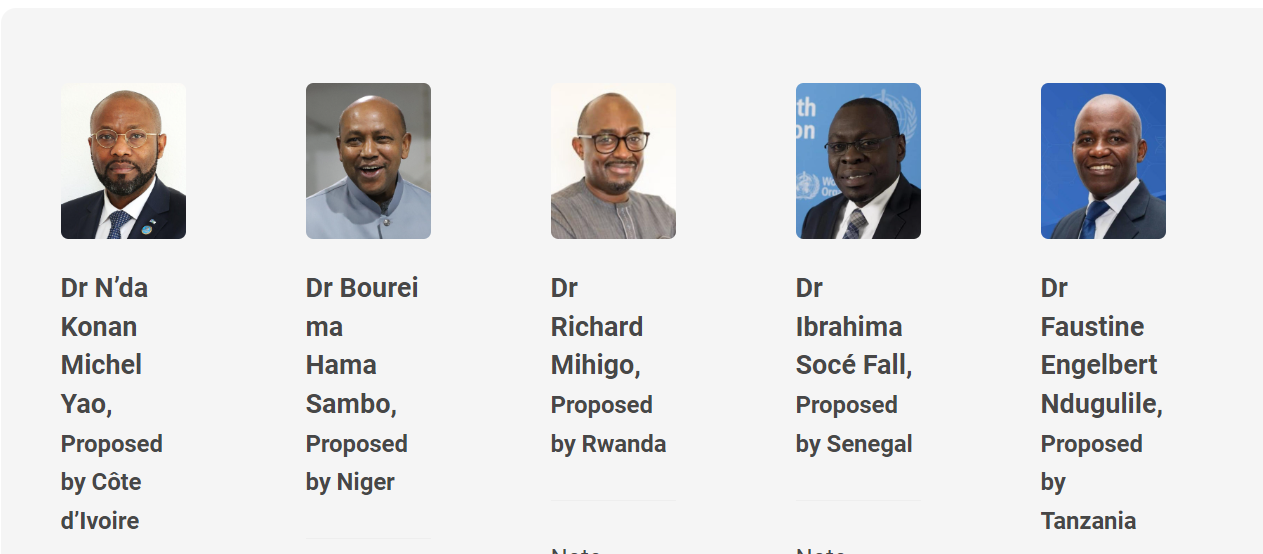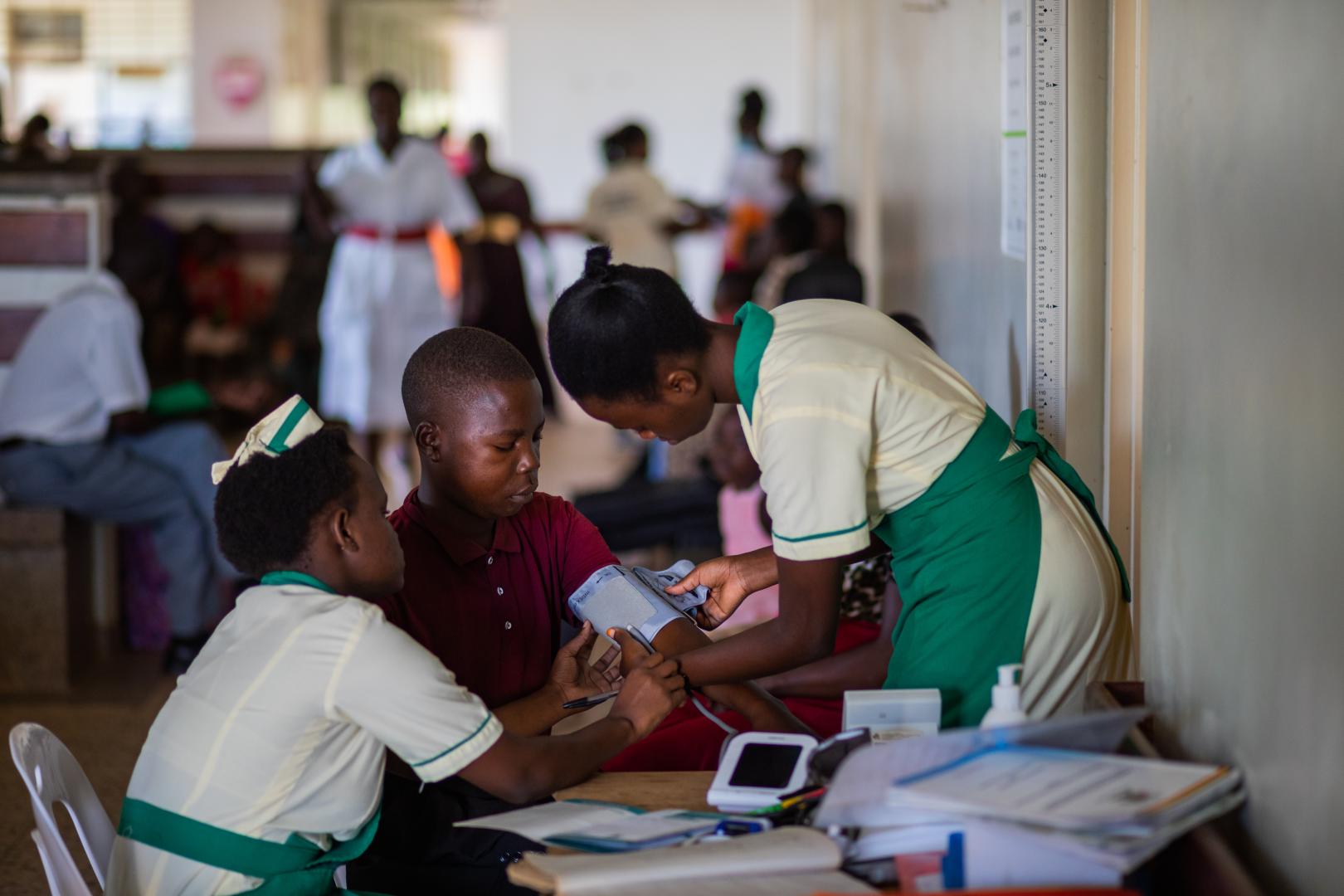In their quest to digitise cancer screening in Tanzania using Artificial Intelligence (AI), Sang’udi Sang’udi and his team of scientists face a significant challenge: the scarcity of local data. A common hurdle across Africa’s AI landscape, this has turned their initial optimism into a complex journey akin to navigating a ‘data desert.’
AI broadly involves deploying and automating computer systems to perform tasks that typically require human intelligence. For an AI system to work best, it requires high-quality data.
“We’ve trained an AI model that can aid early detection of cancer by analysing medical images,” says Sang’udi Sang’udi, a medic who teamed up three years ago with a software engineer and public health enthusiasts to launch Saratani AI, an AI-powered tool for cancer screening in a country where most cancer patients are diagnosed late, and the scarcity of medics is dire.
The Cancer Burden
The cancer burden cripples both individuals and the healthcare system while efforts to tackle the menacing disease demands urgent investment in early detection and affordable care.
AI-Powered Cancer Screening
The Saratani AI tool, which Sang’udi and team are working on, primarily for cervical cancer screening, allows medical professionals to analyse images of cells known as cytological images, and provides results in under 10 seconds, significantly reducing human error.
AI algorithms are trained to identify subtle patterns and structures in the images that might be difficult for humans to detect, thereby improving the effectiveness of cancer screening programs.
The Data Hurdle
Sang’udi says the rollout of Saratani AI for its intended users in Tanzania might face delays. The reason, as he explains, is based on the lack of good quality data.
“We are creating a health solution for the local population, but we rely on datasets from the Global North to train our AI models. And this is a problem," he told MedicoPRESS. This reliance on non-local data complicates their initial goal of piloting the tool in Tanzania promptly.
Population differences in genetics, lifestyle, and environment may skew the AI tool’s understanding of local disease patterns, potentially leading to biased and inaccurate diagnoses.
The World Health Organization (WHO) cautions against potential biases in AI training data, which might lead to inaccurate or misleading information, posing threats to health, equity, and inclusiveness.
Deogratius Mzurikwao, AI researcher and lecturer at Muhimbili University of Health and Allied Sciences, echoes these concerns. He emphasises that there is a heightened risk of bias when AI tools trained on foreign data are applied locally.
“An AI tool is as good as the data on which it is trained to operate,” explains Mzurikwao, adding that biased algorithms can pose “serious medical and legal implications for patients.”
Local Solutions
In response to these challenges, Sang’udi and his team are exploring collaborations with institutions to acquire data that are more representative of the local Tanzanian context.
“The best option we now think of is to start collaborating with institutions to find a database that suits our settings,” says Sang’udi.
Biochemical Engineer and Founder of YEBI Health, Vincent Rwehumbiza, says the scarcity of local data, while challenging, also presents an opportunity for innovation. He suggests that Tanzanian AI pioneers, including Sang’udi’s team, could take the lead in gathering and curating local datasets over time.
“In fact, these AI innovators can champion the local data sets, and collect data across parameters and curate them over time,’’ says Rwehumbiza, adding, “It’s an expensive undertaking but worth investing in.”
Jabhera Matogoro, a lecturer at the University of Dodoma’s Department of Computer Science and Engineering, is at the helm of an AI Mental Health Project in Dodoma focused on developing an AI model grounded in native data.
“We have to start somewhere, even if it may take time. To avoid having AI solutions that could be based on non-representative or biased data, we’ve decided to start our project by collecting local data,”
Jabhera Matogoro-Lecturer, UDOM
The project, supported by Tanzania’s Commission for Science and Technology (COSTECH), represents a significant step towards integrating locally relevant data into AI applications by creating datasets that originate from Africa, utilising existing paper-based or semi-automated patient data from select Tanzanian hospitals.
Matogoro acknowledges the current limitations in policy while remaining optimistic.
“We have some standards in place. Although we don’t have a fully-fledged AI policy, we can use the available standards to start collecting local data.”
Data Protection
Pointing out the critical need for regulatory guidelines in AI data collection, Rwehumbiza questions whether Tanzania has “a policy on AI to guide how we can collect good quality data for AI.”
While data protection laws are being established across East Africa, regulation of AI requires more nuanced approaches that prioritise data rights, according to Lawyers Hub, a Kenya-based Pan-African Law-Tech organization focusing on blending legal expertise with technological innovation in digital policy and justice.
“[In Tanzania], there is a sense in which policymakers don’t think there is urgency for this [AI policy]. They believe the current ICT policy we have can suffice. This is a big no,” says Maxence Melo, digital rights advocate and founder of JamiiForums, Tanzania’s most popular social media platform, known for its user-generated content and open discussions on a variety of topics.
Melo raises concerns about the handling of cross-border data transfers, especially in medical contexts, questioning the regulatory oversight in such scenarios.
Instrumental in the enactment of Tanzania’s Personal Data Protection Act of 2022, Melo believes that while existing laws in the country may offer some protection, they still fall short when it comes to the complexities of AI.
“This lack of legal framework creates uncertainty for both patients and healthcare providers when it comes to AI health tools,” he says, underscoring the urgency for comprehensive AI regulations.
AI Regulatory Challenges
Amidst the burgeoning AI sector and the absence of a comprehensive regulatory framework, the Tanzanian government has to revamp its technology policies, says digital rights advocate Melo, emphasising the need for regulation in data collection processes used by AI systems.
But while acknowledging the concerns raised by data rights champions advocating for a dedicated AI policy, Deputy Minister for Information, Communication, and Information Technology Andrea Kundo stresses on a broader vision.
“Artificial Intelligence is one of the emerging technologies. We can’t come up with a policy that targets one thing in a broader spectrum of technologies that are emerging,” he told MedicoPRESS on the sidelines of the Annual General Meeting of Tanzania Startup Association in Dar es Salaam.
Kundo said the government is working on a border policy but admitted there would be a need for adaptability in the future.
“If challenges emerge in the process of implementing that policy, we may have to come up with a policy that responds to the needs of the time,” said Kundo.
But the local data drought continues. Melo stresses that the planned government’s policies, when in place, must strive to address sensitive data issues.
“Entrusting people or agencies to collect and process sensitive data like health information without regulation is too risky,” says Melo, noting the volatile nature of human ethics and the need for safeguards beyond individual responsibility.
“It takes just a second for someone to become unethical, but years to build an ethical person,” he says, adding, “Building ethical AI requires more than just accurate tools.”
And for now, as the country lacks dedicated regulations on AI, the AI researcher Deogratius Mzurikwao cautions against the dangers of “irresponsible AI products” flourishing in an unregulated environment as resources remain scarce for innovators in developing safe and ethical solutions.
This situation underscores the urgent need for comprehensive AI governance to ensure the ethical and safe development of AI technologies, Mzurikwao adds.
“Young, ambitious AI innovators might prioritise speed to have their products on the market over ethics. This means that potentially harmful products may be released to society,” he says.









